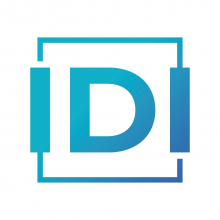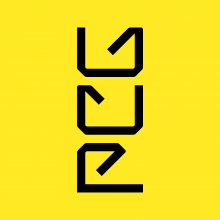
There are 15 Companies in Greece
that provide Angular Development Services!
Greece is the home of democracy, modern politics, and beautiful beaches. These make the country famous for. Somewhere at the end of the line, the tech sector also makes Greece a good destination for investors who aim at the Mediterranean area.
Discover Top IT Companies in Greece specialized in Angular and other related services. Find the best IT service providers for your projects.
Angular (formerly AngularJS) is a popular open-source web application framework maintained by Google and a community of developers. It's used for building dynamic, single-page web applications (SPAs) and web-based applications in general. Angular provides a structured and organized way to create complex web applications by extending HTML with additional features and enabling the development of interactive, responsive, and maintainable front-end web interfaces.
Handpicked companies • No obligation to hire • 100% risk-free
Featured Companies in Greece
This month, the following Angular Development companies managed to provide an outstanding service and support. It's worth taking a look.
HyperFlow Digital builds powerful websites, apps, marketing campaigns, and AI solutions that drive growth and digital transformation.
Meet Coded Lines, we transform your visionary app ideas into reality! Dream big and we'll engineer it into existence!
Explore Top Angular Development Companies in Greece
Digital Marketing and Technology Firm
Way2Smile Solutions Dubai- a leading IT consulting company in Dubai, UAE that's helping businesses, governments, and communities make their next move.
A digital partner helping brands do more
Services:
🚀 Helping Tech Teams Deliver Projects Successfully | Project Outsourcing | Staff Augmentation
Multi-Award-Winning Digital Marketing Agency
Services:
Building Information and Technology for people
Services:
We take pride in designing & developing digital products
Services:
We're your trusted partner backed by certified expertise. We empower European businesses in developing and growing their cloud strategy.
if you can imagine it, we can make it happen
Way2Smile Solutions is a trusted UK-based Software & IT Consulting Company.
Filter Angular Development Companies in Greece by Cities
Find the right tech company near you or from a specific city. Some of the best companies might be located in smaller cities.
Find more Angular Development companies around the world
TechBehemoths is the world's most advanced and user-friendly platform to match IT Companies with real clients without hustle.
The Greek Tech Industry: IT Profile and General Overview
Greece is the home of democracy, modern politics, and beautiful beaches. These make the country famous for. Somewhere at the end of the line, the tech sector also makes Greece a good destination for investors who aim at the Mediterranean area.
With an accent on the public sector, Greece never focused and consolidated its efforts around the tech sector, until 2018, when the government sought financial assistance and resources to get out of the economic crisis the country was hit with in the mid-2010s. The Greek tech ecosystem was granted over €260 million from the European Investment Fund and private investment, indicating a confident bet that this is the next disruptive and transformative sector. Since this investment, the country has seen a flurry of innovation as predicted and beyond. The number of firms in the venture capital space has quadrupled, spurring exponentially more ideas and innovation from young minds, founders, and investors in the space.
In the present day, Greece’s startup ecosystem has an annual growth rate equal to 12.1%, has over 300 startups, and is ranked #19 in Western Europe, remaining stable since 2024.
Why You Should Work With Greek IT Companies
The main lesson Greek companies learned from the European digital market was that they have to provide high-quality services for affordable prices in order to be competitive and attractive. But this helped not only to attract new clients but also to investments and stimulate the workforce to enroll in the IT sector and develop the country’s economy.
Digitalizing the tourism sector and providing more accessibility to potential visitors was the first successful test that local companies have passed before going internationally. Now, in 2025, more than 80,000 workers are employed in the Greek tech sector with an average wage of 1,597 euros/mo. At this rate, Greek IT companies provide probably the lowest costs/project in the Mediterranean area, using at the same time the latest technologies and delivering decent projects to national and international customers.
What You Should Be Aware of When Working With Greek IT Companies
On the other hand, Greek IT companies lack experience in the international market and find it difficult to compete outside the geographical area they are located. Competition in the European market is indeed tough, and few get to know the ultimate prize for fame since there is no #1 company in the world. But with all that, in 2025, not all Greek IT companies and digital agencies can compete with Western European companies.
How Reliable Are Greek IT Companies
On the regional level, Greek IT companies are not only reliable but also among the most favored for clients. But the lack of experience and the in-development IT industry create a psychological barrier for potential clients, especially big companies. On the other hand, taking into account the speed of progress Greek companies are registering, it is possible to see a surprise turnover where the IT sector will be at the same heights or even more developed compared to Western European countries.
How Does the Greek IT Sector Relate to the Neighboring Countries?
Greece’s geographical position makes the country a strategic place in terms of connectivity and transition for the entire Europe. Compared to the Balkan countries, the Greek IT sector is well ahead, mainly because of funding opportunities, but also due to the government-supported policies and facilities for local IT companies.
What is Angular and what are its benefits for your projects?
Angular (formerly AngularJS) is a popular open-source web application framework maintained by Google and a community of developers. It's used for building dynamic, single-page web applications (SPAs) and web-based applications in general. Angular provides a structured and organized way to create complex web applications by extending HTML with additional features and enabling the development of interactive, responsive, and maintainable front-end web interfaces. Here are some key aspects and concepts of Angular:
-
Component-Based Architecture
-
Templates
-
Directives
-
Dependency Injection
-
Services
-
Routing
-
Observable and RxJS
-
Modules
-
Testing
-
Cross-Platform
Angular's structured approach, strong tooling, and vibrant ecosystem of libraries and extensions make it a powerful framework for building modern web applications. It is particularly well-suited for large and complex projects where maintainability and scalability are crucial.
Companies may choose Angular over other front-end frameworks for their projects for a variety of reasons, depending on their specific needs and priorities.
-
Google Backing: Angular is developed and maintained by Google. This association often gives companies confidence in its long-term support, stability, and continuous improvement. Google's involvement is seen as a sign of reliability and commitment to the framework.
-
Mature and Established: Angular has been around for a while and has a strong track record of being used successfully in large-scale enterprise projects. It has a well-defined architecture and best practices, which can be beneficial for maintaining and scaling applications over time.
-
TypeScript Support: Angular is built with TypeScript, a statically-typed superset of JavaScript. TypeScript provides better tooling, code maintainability, and catches errors at compile time, which can reduce bugs and enhance code quality, making it attractive to companies that prioritize robust code.
-
Full-Featured Framework: Angular provides a comprehensive set of tools, libraries, and features out of the box, including routing, form handling, HTTP client, and more. This can save development time and effort compared to integrating multiple third-party libraries in other frameworks.
-
Two-Way Data Binding: Angular offers powerful two-way data binding, which allows for automatic synchronization between the data model and the view. This feature can make it easier to develop interactive and responsive user interfaces.
-
Large and Active Community: Angular has a large and active community of developers and a wealth of resources, including documentation, tutorials, and third-party libraries. This can be beneficial for finding solutions to common problems and getting support when needed.
-
Enterprise-Ready: Angular provides features like dependency injection, modularity through modules, and a strong emphasis on testability. These characteristics are well-suited for building robust and maintainable enterprise-level applications.
-
Strict Coding Standards: Angular enforces a set of coding standards and best practices, which can lead to more consistent and readable code. This can be important for companies with multiple developers working on the same codebase.
-
Cross-Platform Development: Angular can be used for building both web and mobile applications. Companies looking to develop applications for multiple platforms may choose Angular for its ability to share code between web and mobile apps using technologies like NativeScript or Ionic.
-
Integration with Backend Technologies: Angular can easily integrate with various backend technologies and APIs. This makes it suitable for projects where the front end needs to communicate with different types of server-side applications.
-
Security Features: Angular provides built-in security mechanisms to help prevent common web vulnerabilities like Cross-Site Scripting (XSS) and Cross-Site Request Forgery (CSRF). This can be crucial for projects with high security requirements.
-
Ecosystem and Tooling: Angular has a rich ecosystem of tools, extensions, and IDE support, including Angular CLI for project setup and management. This can streamline development workflows and improve productivity.
Ultimately, the choice of Angular or any other framework depends on the specific project requirements, the development team's expertise, and the company's long-term goals. Companies evaluate various factors to determine which framework aligns best with their needs, resources, and priorities.














